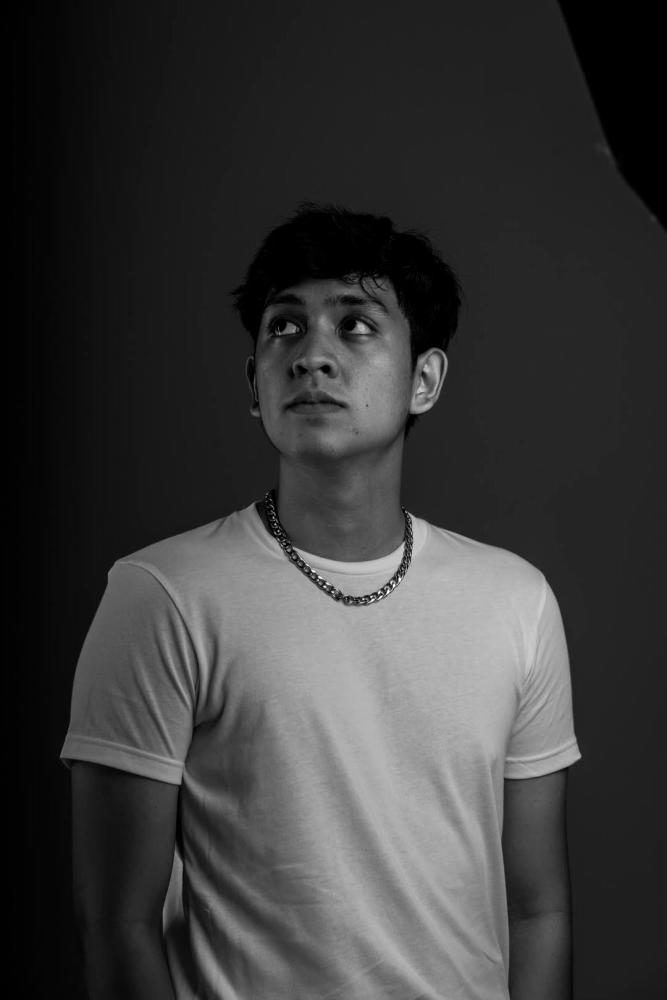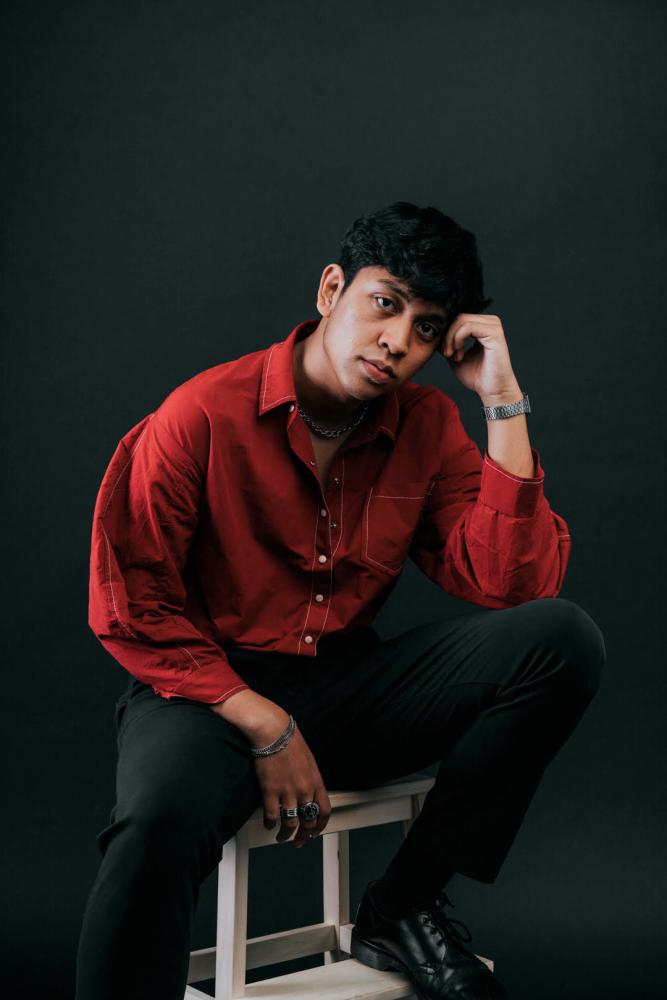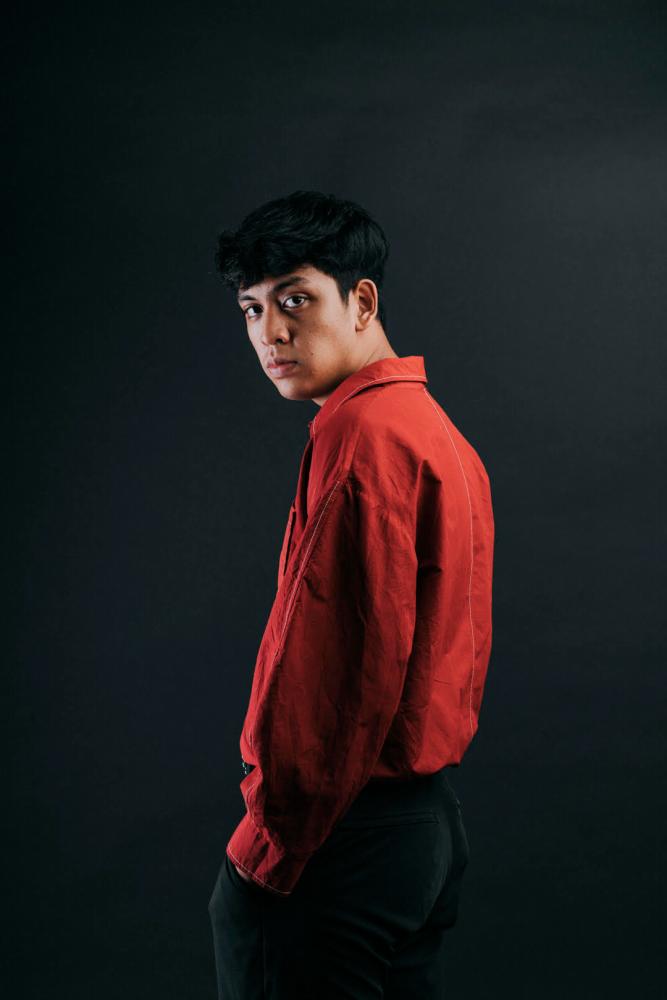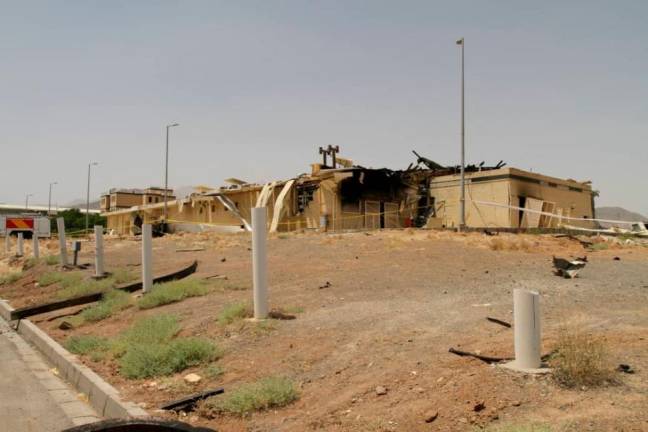ALTHOUGH his parents sent him for violin classes at the age of six, singer-songwriter Ky Den eventually shifted towards the guitar and synthesiser.
“Then it paused for a little, because I was just stuck with playing three songs over and over on the guitar. Then two years ago, I got my first laptop and discovered more about music production. That was when I realised all songs were produced by producers,” said Ky Den, whose real name is Chairil Danish.
Since then, the singer quickly grew in prominence within the Malaysian indie scene, particularly after dropping his debut EP, Damai in January.

Why did you lose interest in the violin?
I don’t know for sure. The violin wasn’t my idea, it was my parents, so I just went with it. I was at a phase where I wanted to discover more things and my interests. The violin didn’t really ... I wouldn’t say it didn’t resonate with me, as I really loved playing it. I just stopped for some reason, because I guess I was just like that as a kid ... pick up something then lose interest, pick up something else, and lose interest. Just bouncing here and there finding the “it” thing I wanted.
Do you think that you naturally leaned towards the guitar because your dad was a guitarist?
I guess so, because my first guitar was a hand-me-down acoustic from my dad. I think he kind of encouraged me as well. He played more towards rock, like Guns N’ Roses, Metallica and all that.
My dad definitely played a large role in me playing the guitar. He was very supportive.
How do you balance your time as a student and a musician?
For now, it’s kind of easy because we haven’t started yet. Before this, I would study for a bit after coming back from class, and after that, whatever free time I have left was spent on making music. It wasn’t like that every day, but I try lar.

In what ways has Sarawakian influences bled into your music?
In many ways. To compare, the thing that really refreshes my mind whenever I come back to Sarawak is the slow, relaxed pace of almost everything. It really helped to inspire me to write music about it. Especially the beach, which is so accessible here. It’s another thing that affects my songwriting process, along with being close to my family and friends.
Tell us about your debut EP, Damai.
Every song except Alone was done in one day. The whole EP starts with Damai, an instrumental. For some reason, I didn’t know what to write for that song until a friend told me her most beautiful memory of her significant other. For Alone, I got the beat and instrumental down first, but after that I couldn’t proceed because I was really scared that people might think... there’s a thing in Sarawak called ingga culture, which means it’s a taboo thing to do something out of the ordinary. Like people would be judgemental.
Considering Sarawakian songs are very rare in Sarawak, I didn’t know what to do or how to write them. So I contacted Zee Avi, who wrote Siboh Kitak Nangis, a Sarawakian song. I asked her for advice, and she hummed the first few melodies and words. Then I went straight to writing it. All in all, it took a few months.
How did you create your unique blend of R&B and Hip Hop sound?
It took a lot of trial and error, along with an unhealthy amount of time on my software. I never had the money to purchase third-party plugins that most producers use. I only had stock plugins. I wanted to make something out of the ordinary, and I guess it’s just who I am. I guess it took one year plus.
What comes after Damai?
There are no solid plans yet. I’m still producing and writing a project which will probably be out next year.













